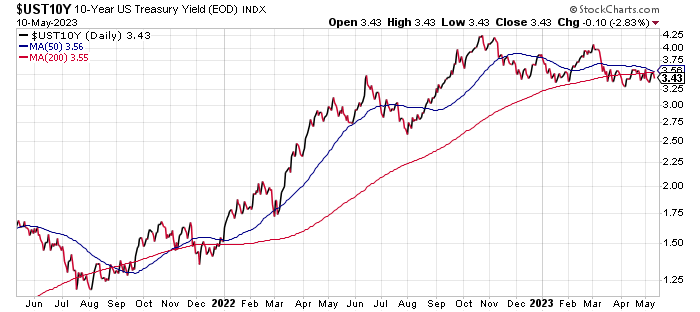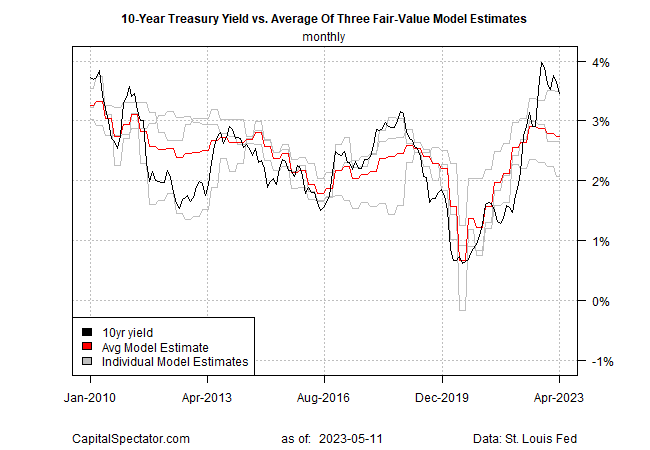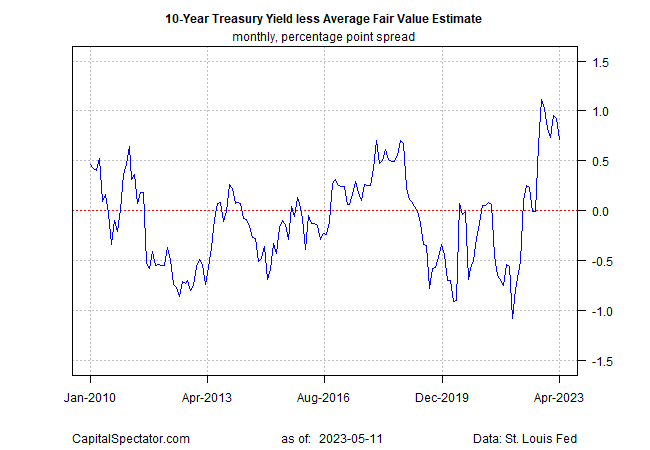10-Year U.S. Treasury Yield Peaks as Fed Signals Pause
US10Y…
-0.05%
Add to/Remove from Watchlist
Add to Watchlist
Add Position
Position added successfully to:
Please name your holdings portfolio
Type:
BUY
SELL
Date:
Amount:
Price
Point Value:
Leverage:
1:1
1:10
1:25
1:50
1:100
1:200
1:400
1:500
1:1000
Commission:
Create New Watchlist
Create
Create a new holdings portfolio
Add
Create
+ Add another position
Close
The wide spread between the US 10-year Treasury yield and CapitalSpectator.com’s lesser fair-value estimate continues to narrow, albeit slowly. As outlined on these pages in recent months, the model continues to project a lower market rate ahead. Timing is unknown, but today’s revised analytics reaffirm the forecast.
The 10-year yield continues to trade well below its peak, ending yesterday’s session at 3.43% (May 10). As recently as early March, the benchmark rate hit 4.08%. But as we discussed later that month, the fair-value model pointed to a lower market rate in the months ahead, and so far, that forecast remains intact in today’s update.
 UST10Y Daily Chart
UST10Y Daily Chart
The current fair-value estimate is 2.75% for April, virtually unchanged from the previous month. The fair value is based on the average of the three models defined here.
 10-Yr Treasury Yield vs Avg of 3 Fair Value Model Estimates
10-Yr Treasury Yield vs Avg of 3 Fair Value Model Estimates
The market rate is still well above the average estimate, but this spread continues to decline, albeit slowly. The gap eased to 71 basis points in April, a seven-month low.
 10-Yr Treasury Yield less Avg of Fair Value Estimates
10-Yr Treasury Yield less Avg of Fair Value Estimates
The spread still looks set to narrow further. If inflation and economic activity turns substantially higher, the forecast could be undermined. But for the moment, the odds for those scenarios are unlikely for the immediate future.
The Federal Reserve is expected to provide a degree of support for a further narrowing of the spread. Fed funds futures are currently estimating a high probability that the central bank will pause its rate hikes at the next policy meeting on June 14.
“We expect the FOMC to maintain the federal funds rate at its current level for the foreseeable future and for inflation to slow further in the months ahead as supply pressures continue to ease and demand growth weakens,” Wells Fargo’s economics team wrote on Wednesday.








